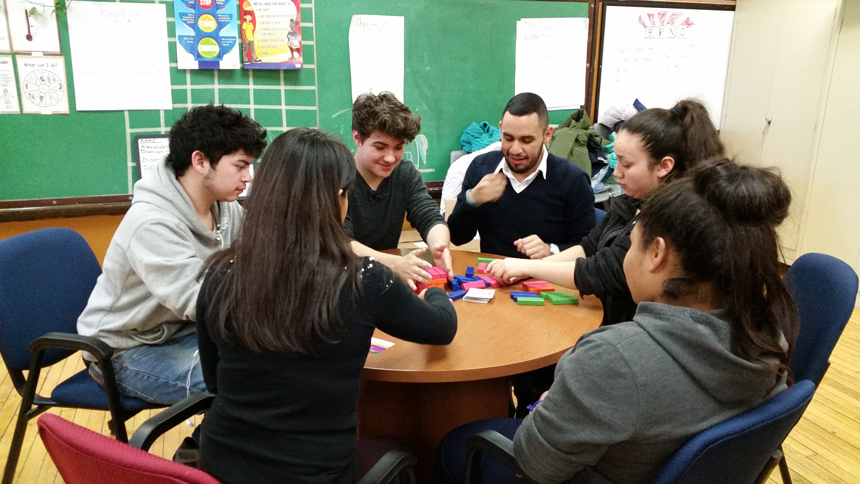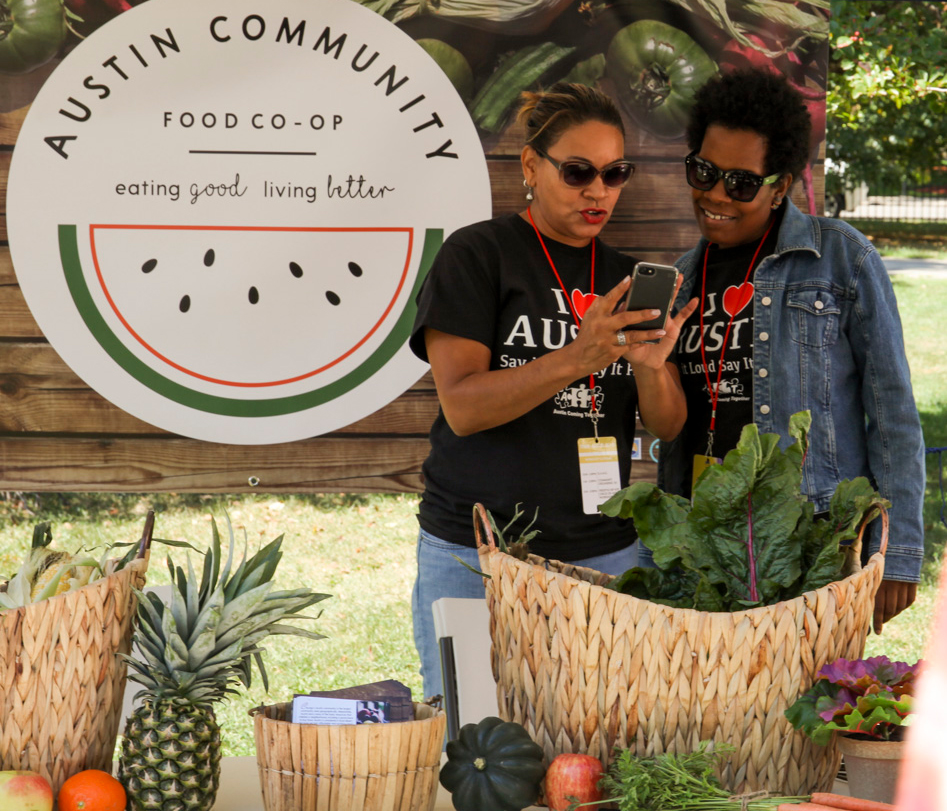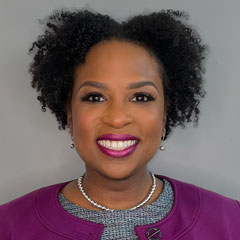Tawa Mitchell shares how we developed our Vital Communities strategy to respond to identified needs and emerging ideas from existing community networks.
Throughout our 40-year history, MacArthur has invested over $1.3 billion in Chicago organizations and individuals—more than any other place in the world. Despite this deep and enduring commitment to the place we call home, we still heard skepticism in the voices of some Chicagoans who feared that we were disinterested in supporting new ideas that emerged from communities and neighborhoods.
As the Chicago Commitment team developed our grantmaking strategy, we listened to a range of individuals—some were familiar to us, like current or former grantees and peer funders, but many more were not. We heard from faith leaders, community residents, grassroots organizations, and young people, some barely old enough to vote. They shared their vision for the city they love and offered thoughts on how MacArthur could help them achieve that vision. In each community and in each conversation, residents asked that we respond to local initiatives and show respect for residents’ approaches to community development. These themes have become pillars in what we now call the Vital Communities area of our Chicago Commitment strategy.
One listening session participant summed up the challenge this way: “Once upon a time, if you had a good idea to solve a problem, you could approach staff at the MacArthur Foundation to test that idea. Nowadays, it seems that philanthropy has all of the ‘good ideas’ and there’s no longer a place for community-driven solutions.” We heard that message loud and clear; our new approach embraces initiatives developed by, for, and with Chicago’s communities.
From 2003 to 2013, the MacArthur-supported New Communities Program (NCP) incentivized 16 communities to try an approach to community and economic development that would comprehensively address local issues. MacArthur provided $60 million in funding, in addition to technical resources, to help improve residents’ quality of life with regard to employment, health, housing, and violence. We learned a great deal about working in neighborhoods throughout this decade of investment, including the power of local networks, the need to invest in strengthening those networks, and the importance of identifying network members’ shared goals and objectives.

Brighton Park Neighborhood Council's Leaders of Tomorrow (LOT) Violence Prevention program works with at-risk youth by providing them motivational case management and trauma-informed counseling.
While we want to build on these critical lessons learned, Vital Communities represents a departure from NCP. We respond to identified needs and emerging ideas from existing community networks rather than encouraging the creation of new collaborations. We support established community initiatives with shared objectives that local residents, business owners, and neighbors have co-developed. We respect the fact that good ideas are not solely created in policy centers and government offices downtown; ideas also emerge from the daily experiences of the city’s residents as they work to improve their neighborhoods.
For example, Bright Star Community Outreach brings diverse groups of people together with the goal of reducing violence and strengthening the Bronzeville community on Chicago’s South Side. In partnership with local residents, faith leaders, schools, police, academics, and other community-based organizations, Bright Star surveyed youth, adults, and community-based agencies to better understand the needs in Bronzeville as well as what programs and services were already in place. Their efforts resulted in the creation of the Greater Bronzeville Community Action Plan. Our award allows Bright Star to strengthen its capacity both as an effective service provider for youth and families and as a community anchor organization focused on collective impact in Bronzeville.
Bronzeville’s story is just one example of the kind of self-determination that communities throughout Chicago are expressing on issues from chronic unemployment and economic development, to school improvement, to gun violence. In Austin, Austin Coming Together (ACT) leads a partnership of more than 70 nonprofit, faith-based, public and private organizations aimed at tackling the most pressing problems in this West Side neighborhood. Their goals include increasing reading and math performance at area schools, decreasing poverty and violent crime, and stabilizing property values. Our support will help provide ACT with the data and research its members need to close the gaps in service delivery and to help its partners achieve their goals sooner.

Austin Food Co-Op during the I Love Austin Youth Showcase & Summit at Austin Town Hall Park. Natasha Smith-Walker (left), and Vanessa Stokes (right)
The Brighton Park Neighborhood Council (BPNC) manages a coalition of 42 member organizations that have collectively identified the issues of education, health, public safety, and economic stability in its Southwest community. Our grant to BPNC will help it to double down on its community safety and economic development focus by developing a comprehensive strategy that leverages each partner’s strengths and provides member organizations with additional funding to serve their neighbors.
It is our hope that by investing in these community-led efforts, we can help position neighborhoods to build a broader policy and organizing agenda for Chicago. We know that positive social change is most effective when community voices are represented in policy dialogues before change takes place. How can community leaders be ensured a seat at the table when decisions are being made at a local, county, or state level? While our responsive grantmaking in Vital Communities may appear to be hyperlocal in nature, it is our ultimate goal to center these community voices within the civic and political leadership conversations taking place downtown, downstate, and elsewhere.
There is a refrain that is currently being echoed in communities throughout the country: “Nothing about us, without us.” At MacArthur, we are taking this message to heart as we support and amplify the work happening in community-driven and community-led initiatives in Chicago’s neighborhoods.




